Latino/a Success in College from Amazon
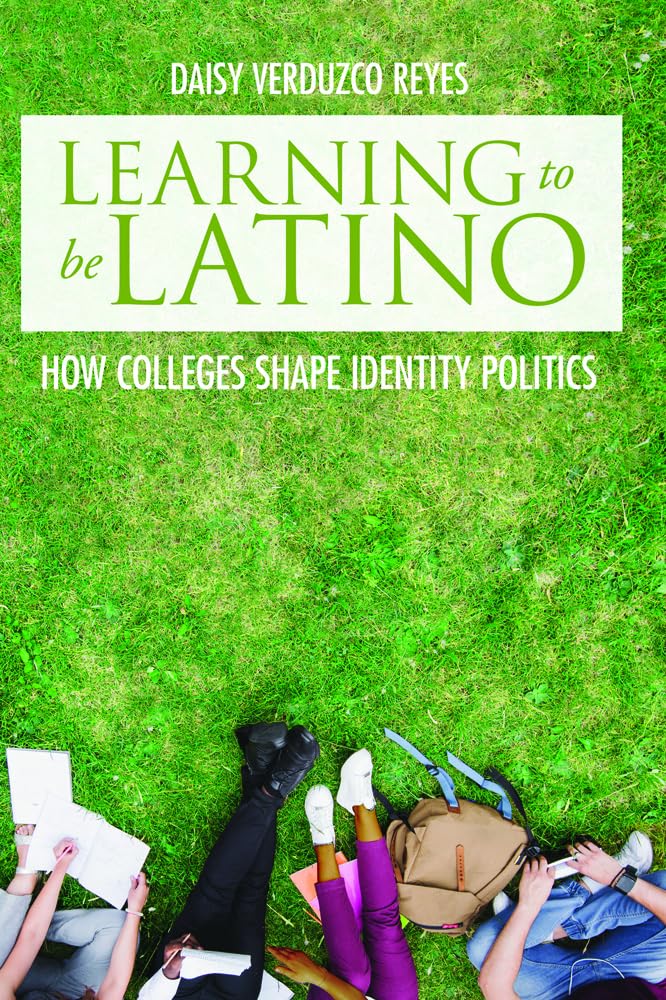
LEARNING TO BE LATINO: HOW COLLEGES SHAPE IDENTITY POLITICS
Author: Daisy Verduzco Reyes
Publisher: Rutger University Press
ISBN-13: 978-0813596464
In Learning to Be Latino, sociologist Daisy Verduzco Reyes paints a vivid picture of Latino student life at a liberal arts college, a research university, and a regional public university, outlining students’ interactions with one another, with non-Latino peers, and with faculty, administrators, and the outside community. Drawing on extensive ethnographic observations, Reyes shows how college campuses shape much more than students’ academic and occupational trajectories; they mold students’ ideas about inequality and opportunity in America, their identities, and even how they intend to practice politics.
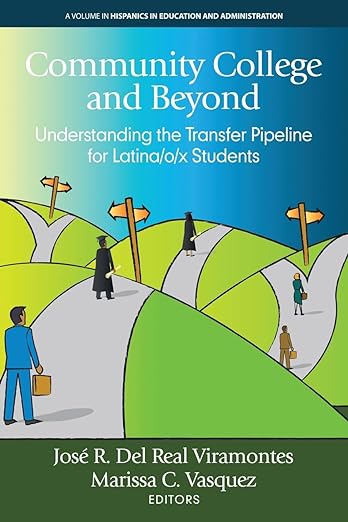
COMMUNITY COLLEGE AND BEYOND: UNDERSTANDING THE TRANSFER PIPELINE FOR LATINA/O/X STUDENTS
Editor: José R. Del Real Viramontes
Publisher: Information Age Publishing
ISBN-13: 979-8887303581
Community College and Beyond: Understanding the Transfer Pipeline for Latina/o/x Students is the first edited book to provide much needed theoretical and empirical insights on Latina/o/x students who enter postsecondary education through the community college. This book offers a comprehensive outlook on the pre- and post-transfer experiences of Latina/o/x students written by scholars and scholar practitioners working in the field of higher education. In addition, we include specific sections that speak directly to policies, practices, and theory that address transfer pathways for Latina/o/x community college and transfer students.
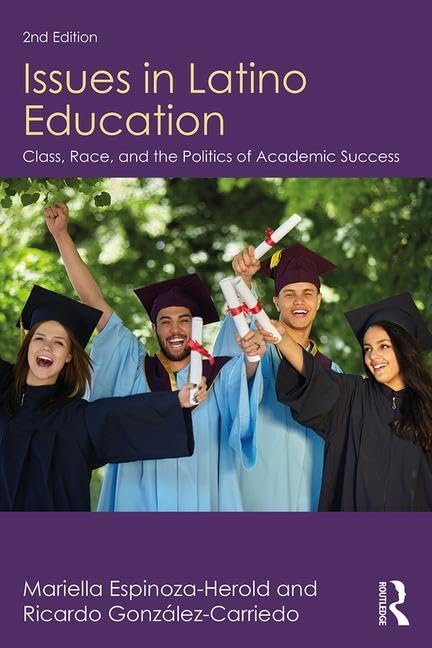
ISSUES IN LATINO EDUCATION
Author: Mariella Espinoza-Herold
Publisher: Routledge
ISBN-13: 978-1138228535
This text exposes the educational realities of Latinos (U.S. and foreign-born) in K–12 public schools in the Western United States from the students’ own perspectives. Through the testimonies of students who struggled to graduate from high school, issues that are often oversimplified and commonly misunderstood are brought to life. Examining the question of how to best educate a growing culturally and linguistically diverse student population, this case study provides food for thought on the critical role that human interactions and networking play in attaining one’s dreams and human aspirations.
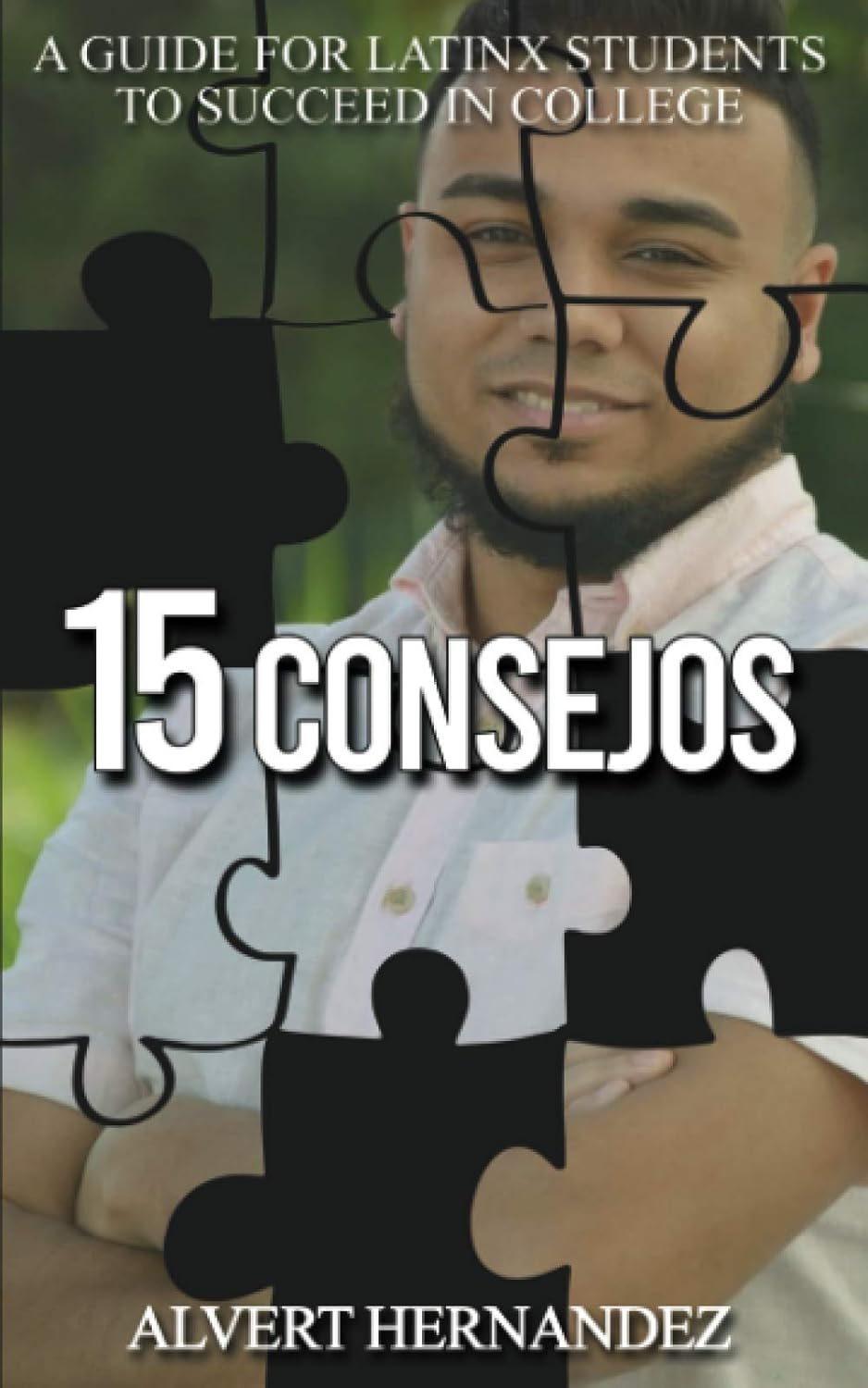
15 CONSEJOS: A GUIDE FOR LATINX STUDENTS TO SUCCEED IN COLLEGE
Author: Alvert Hernandez
Publisher: Fundamental 21 Publishing
ISBN-13: 978-1736762325
15 Consejos merges experience, practice, and real life stories of a Latino male navigating the higher education landscape. Latinx students are often ill-advised and at a disadvantage when it comes to understanding college. The text utilizes a combination of personal experience with best practices that Alvert Hernandez has learned throughout his years as a higher education professional. This is a 15- step journey that fuses Latinx culture with leadership to break down the college experience and help promote Latinx student success in colleges and universities across the country.
Issues in Latino/a Studies from University of Illinois Press
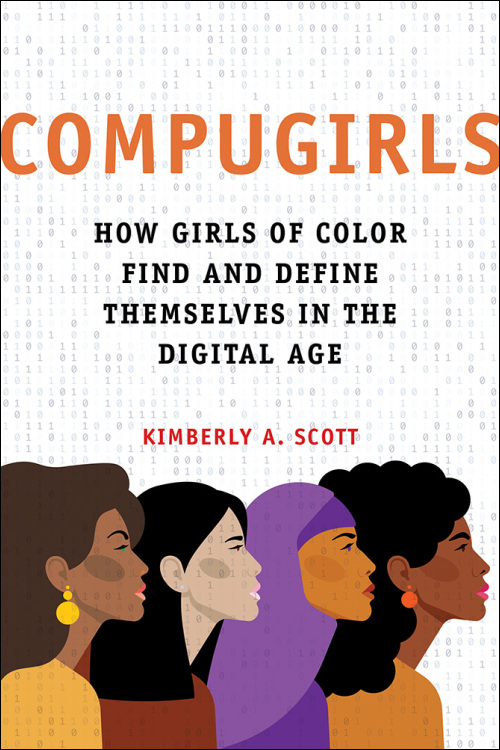
COMPUGIRLS
Author: Kimberly A. Scott
Publisher: University of Illinois Press
ISBN-13: 978-0252086137
What does is it mean for girls of color to become techno-social change agents--individuals who fuse technological savvy with a deep understanding of society in order to analyze and confront inequality? Kimberly A. Scott explores this question and others as she details the National Science Foundation–funded enrichment project COMPUGIRLS. This groundbreaking initiative teaches tech skills to adolescent girls of color and offers a setting that emphasizes empowerment, community advancement, and self-discovery. Scott draws on her experience as an architect of COMPUGIRLS to detail the difficulties of translating participants’ lives into a digital context while tracing how the program evolved.
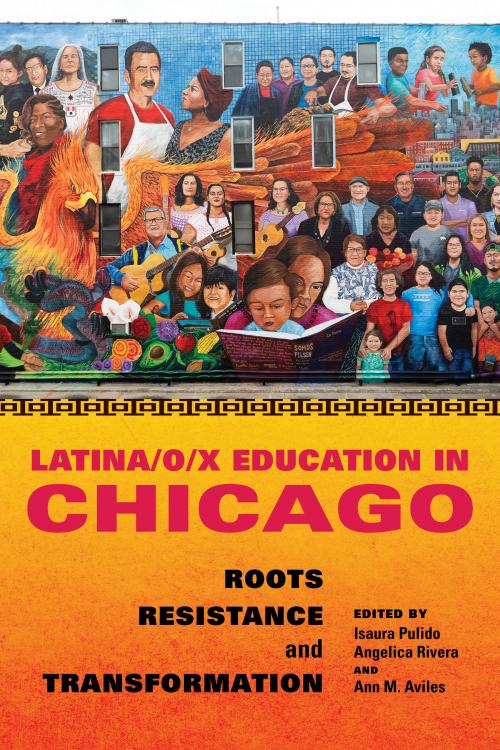
LATINA/O/X EDUCATION IN CHICAGO
Edited by: Isaura Pulido, Angelica Rivera, and Ann M. Aviles
Publisher: University of Illinois Press
ISBN-13: 978-0252086571
In this collection, local experts use personal narratives and empirical data to explore the history of Mexican American and Puerto Rican education in the Chicago Public Schools (CPS) system. The essays focus on three themes: the historical context of segregated and inferior schooling for Latina/o/x students; the changing purposes and meanings of education for Latina/o/x students from the 1950s through today; and Latina/o/x resistance to educational reforms grounded in neoliberalism. Insightful and enlightening, Latina/o/x Education in Chicago brings to light the ongoing struggle for educational equity in the Chicago Public Schools.
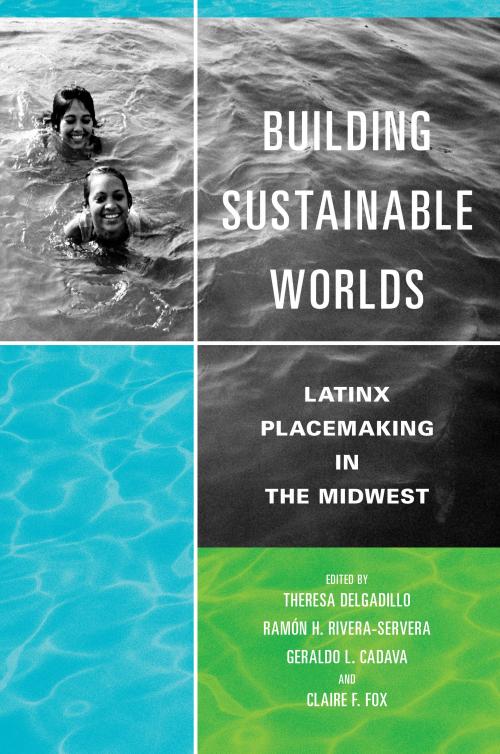
BUILDING SUSTAINABLE WORLDS
Edited by: Theresa Delgadillo, Ramon H. Rivera-Servera & others
Publisher: University of Illinois Press
ISBN-13: 978-0252086618
Latina/o/x places exist as both tangible physical phenomena and gatherings created and maintained by creative cultural practices. In this collection, an interdisciplinary group of contributors critically examines the many ways that varied Latina/o/x communities cohere through cultural expression. Authors consider how our embodied experiences of place, together with our histories and knowledge, inform our imagination and reimagination of our surroundings in acts of placemaking. A rare and crucial perspective on Latina/o/x people in the Midwest, Building Sustainable Worlds reveals how expressive culture contributes to, and sustains, a sense of place in an uncertain era.
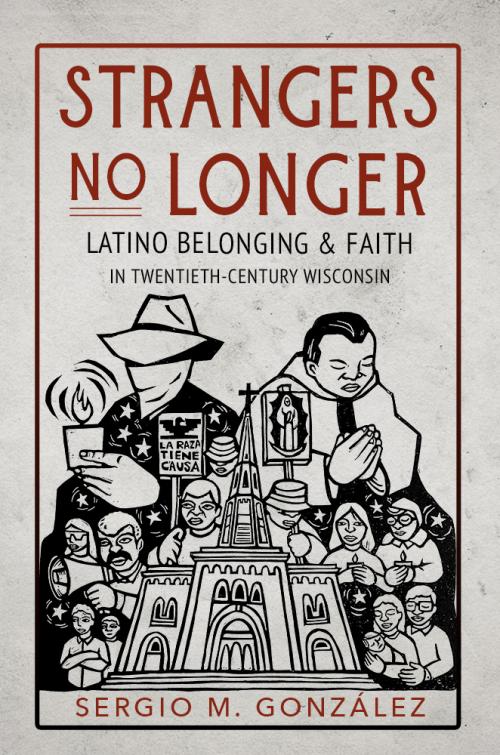
STRANGERS NO LONGER
Author: Sergio M. González
Publisher: University of Illinois Press
ISBN-13: 978-0252087943
Hospitality practices grounded in religious belief have long exercised a profound influence on Wisconsin’s Latino communities. Sergio M. González examines the power relations at work behind the types of hospitality. González’s analysis addresses central issues like the foundational role played by religion and sacred spaces in shaping experiences and facilitating collaboration among disparate Latino groups and across ethnic lines; the connections between sacred spaces and the moral justification for social justice movements; and the ways sacred spaces evolved into places for mitigating prejudice and social alienation, providing sanctuary from nativism and repression, and fostering local and transnational community building.